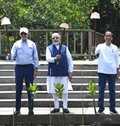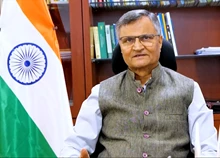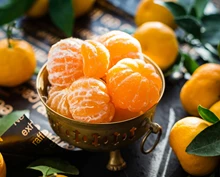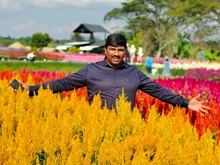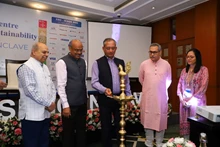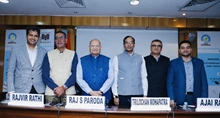
Lahari Bai, a 27-year-old tribal woman from the Dindori region of Madhya Pradesh, received praise from Madhya Pradesh chief minister Shivraj Singh Chauhan and foregn delegates at the G20 Summit for helping to conserve more than 150 uncommon millet types through their seeds.
Millets, also known as Shree Ann, have gained prominence as India and the rest of the world observe 2023 as the International Year of Millets. During an exhibition at the summit, the International Crops Research Institute for the Semi-Arid Tropics (ICRISAT) displayed a variety of millet seeds. Damaris Achieng Odeny, a representative of the institute from Kenya, stated that their institute has provided hundreds of seeds to over 50 countries and is also researching the same. She also discussed the significance of millets.
According to Egyptian delegate Dr Ibrahim Mamdoun Fouda, the G20 meeting will aid in ensuring food security. "My country is in the grip of a food crisis, and we don't have millet. We will learn about its (millet) production and increase agricultural knowledge sharing and collaboration for a better tomorrow," he said.
He also praised Indore's cleanliness, saying that the city has earned the right label. "Indore is a beautiful city, and I enjoyed the heritage and culture of both the city and India," Dr. Fouda said.
In a video posted by DD News, Lahari is seen working with millets including kutki, sanwa, and kodo from her two-room home in Dindori. "We made the decision to store seeds that were no longer available. Once the farmers had gathered their crops, we returned the seeds that we had given them. Our collection of uncommon millet seeds now numbers 16, according to Lahari, who spoke to the channel.
The story claims that Lahari produced the crops on her land before giving the seeds to the local farmers. The adventure has been underway for almost ten years. Additionally, she started giving the seeds away for free to 64 other towns.
Source: Anjul Tyagi, KJ Correspondent at G20 Summit Indore





